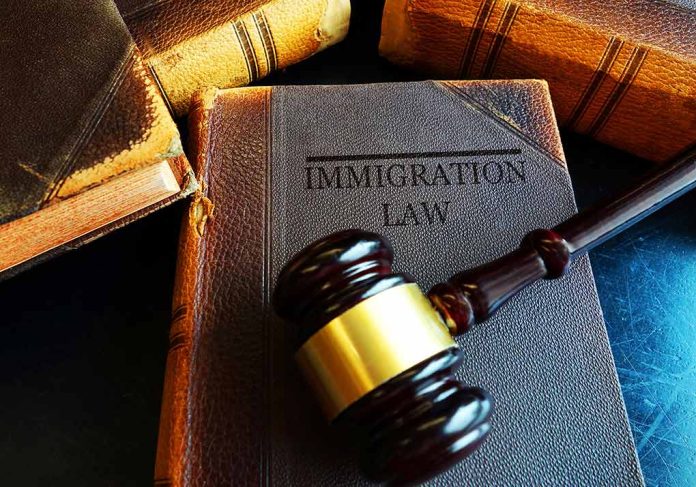
President Trump’s administration has launched groundbreaking talks with Rwanda to accept deported migrants from the United States, marking a strategic shift in America’s approach to handling illegal immigration and criminal aliens.
Key Takeaways
- Rwanda has confirmed early-stage talks with the Trump administration to accept deportees from the United States
- Secretary of State Marco Rubio is actively seeking countries “far away from America” to take deported criminals to prevent their return
- El Salvador has already agreed to a similar arrangement, accepting deportees, including members of the Venezuelan gang Tren de Aragua
- The Rwanda talks began shortly after President Trump’s inauguration, with financial compensation details to be finalized within two weeks
- The initiative builds on President Trump’s campaign promise of “mass deportations” of undocumented migrants
Rwanda Confirms Deportation Talks with Trump Administration
Rwanda’s foreign affairs minister, Olivier Nduhungirehe, has confirmed that his country is in preliminary discussions with the United States regarding a potential agreement to accept migrants deported from America. The African nation has positioned itself as willing to offer new opportunities to migrants who have been removed from U.S. soil. This development represents a significant step in President Trump’s comprehensive strategy to address the illegal immigration crisis that has plagued American communities and strained resources across the country.
“We are in discussions with the United States,” confirmed Olivier Nduhungirehe, Rwanda’s Foreign Affairs Minister.
This potential agreement mirrors Rwanda’s previous willingness to engage in similar arrangements, including a now-abandoned deal with the United Kingdom that faced legal challenges. Rwanda has already demonstrated its openness to accepting deportees from the U.S., having reportedly taken in an Iraqi migrant in March. The discussions began shortly after President Trump took office, underscoring the administration’s immediate focus on implementing its immigration enforcement agenda.
Secretary Rubio’s Strategic Deportation Initiative
Secretary of State Marco Rubio has been forthright about the administration’s approach to handling criminal aliens, emphasizing the strategy of sending deportees to countries distant from the United States to minimize the risk of their return. This policy represents a practical solution to the revolving door that has plagued America’s immigration system for decades, where deported criminals often make multiple attempts to re-enter the country illegally.
“I say this unapologetically, we are actively searching for other countries to take people from third countries,” stated Marco Rubio, Secretary of State.
“We are working with other countries to say, ‘We want to send you some of the most despicable human beings to your countries, will you do that as a favor to us?’ And the further away from America, the better, so they can’t come back across the border,” Rubio further explained, highlighting the pragmatic considerations driving this policy initiative. Financial and logistical details of the arrangement with Rwanda are expected to be finalized within the next two weeks, establishing a framework for this strategic partnership.
We have run out of time for half-measures on immigration. There needs to be one clear and unwavering commitment – every single illegal migrant in the country must be deported. Disappointingly, no major political party is currently offering that.
Not just the objective, but tell…
— Rupert Lowe MP (@RupertLowe10) April 15, 2025
Expanding Network of Deportation Partners
The Rwanda discussions are part of a broader strategy that has already seen successful implementation with other nations. El Salvador has emerged as a key partner, agreeing to accept deportees from the United States, including members of the dangerous Venezuelan gang Tren de Aragua. This arrangement involves a cost-effective financial structure, with the U.S. paying El Salvador a reasonable fee to house deportees in its Terrorism Confinement Center, demonstrating responsible stewardship of taxpayer dollars while addressing public safety concerns.
Beyond El Salvador, the Trump administration has secured similar deportation arrangements with countries including Panama, Costa Rica, and Mexico. These partnerships represent a comprehensive, multinational approach to immigration enforcement that prioritizes American security while distributing the responsibility for handling migrants across multiple nations. The strategy aligns perfectly with President Trump’s campaign promise to implement “mass deportations” of undocumented migrants who have violated U.S. immigration laws.
Diplomatic Dimensions Beyond Immigration
The Rwanda negotiations reflect the Trump administration’s multifaceted approach to foreign policy in Africa. While pursuing the deportation agreement, the United States is simultaneously working to broker peace between Rwanda and the Democratic Republic of Congo, addressing regional stability concerns. Secretary Rubio has praised Massad Boulos, President Trump’s envoy to Africa, for his efforts in the region, including facilitating valuable minerals deals that serve American economic interests.
Rwanda’s willingness to engage with the U.S. on migration issues comes despite criticism of its human rights record from some quarters. The Rwandan government maintains that it provides a safe environment for refugees and migrants. By extending this partnership to accept deportees from America, Rwanda is positioning itself as a constructive player in addressing global migration challenges, while potentially benefiting from financial compensation and strengthened diplomatic ties with the United States.



